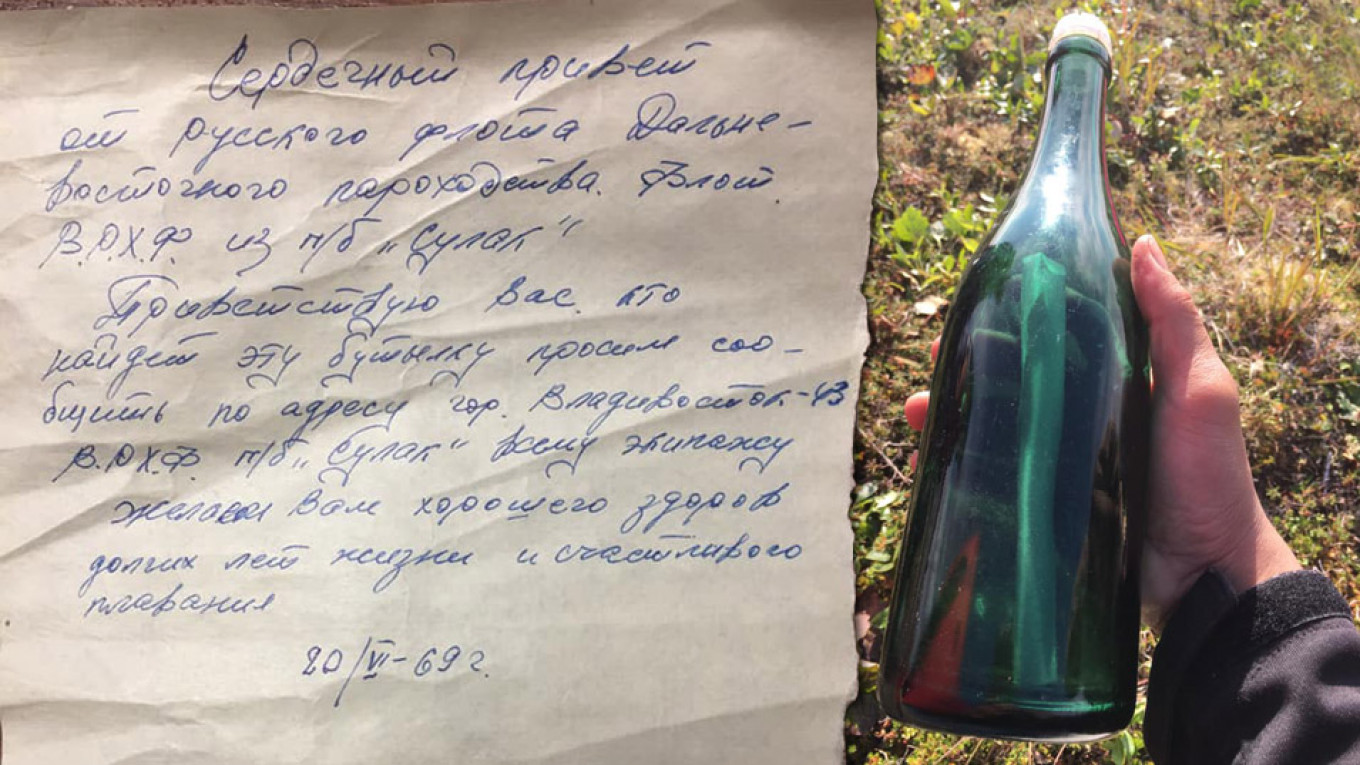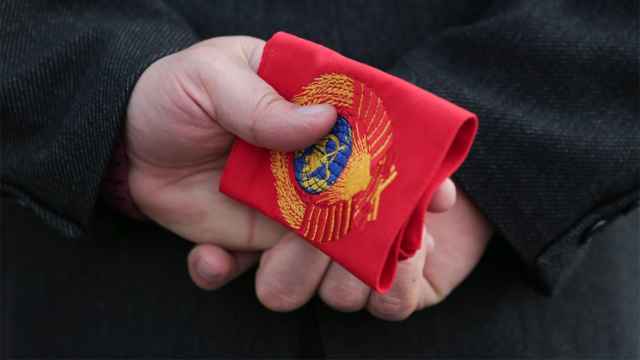A Soviet-era message in a bottle cast out to sea has washed ashore 50 years later, but its recipient needed some outside help to overcome a language barrier.
A 2018 high school basketball coach of the year from Alaska posted photos of the message and the bottle on Facebook this week, asking: “Any friends that are Russian translators out there?”
“I was just walking and collecting firewood for a small fire and came across the bottle,” Ivanoff told The Moscow Times.
“I showed my children the bottle, and they were very excited for me to open it,” he said. “I opened it up, and saw that it was in Russian. They asked me how [Russians] spoke. And I talked a little, like counting to 10 in Russian, and said a small poem that I learned in Russian from when I was in high school. I came home from [our] short boating trip and posted the photos online of the message to see if some friends can translate it.”
Tyler Ivanoff’s page was soon awash with translations of the mysterious message, dated June 20, 1969, which he had found north of the Bering Strait.
“A heartfelt hello,” it opens in cursive Russian on a well-preserved sheet of paper that had been carried over the waves in what appears to be a Soviet sparkling wine bottle.
“Whoever finds this bottle, we ask you to tell the entire crew of the ‘Sulak’ in the city of Vladivostok,” it continues. The letter references an abbreviation of a since-disbanded Soviet Far East fishing fleet.
Online maritime data lists three decommissioned Sulaks built in 1964, 1966 and 1969, with the second vessel classified as a fish factory. The Sulak appears to be a refrigerated cargo ship built in Japan and disbanded in 1992.
“We wish you good health, many years of life and happy sailing,” the letter says in closing.
Users suggested that Ivanoff locate and get in touch with the letter’s author, a task that the coach was happy to pass on to others.
“I’ve been working and berry picking so not much time for research,” he wrote.
Ivanoff told The Moscow Times the online reaction has been unexpected.
“I didn’t expect it to blow up all over the internet. I hope to say hello to the author, and let him know that I had found his message. I plan to keep it in my family.”
A Message from The Moscow Times:
Dear readers,
We are facing unprecedented challenges. Russia's Prosecutor General's Office has designated The Moscow Times as an "undesirable" organization, criminalizing our work and putting our staff at risk of prosecution. This follows our earlier unjust labeling as a "foreign agent."
These actions are direct attempts to silence independent journalism in Russia. The authorities claim our work "discredits the decisions of the Russian leadership." We see things differently: we strive to provide accurate, unbiased reporting on Russia.
We, the journalists of The Moscow Times, refuse to be silenced. But to continue our work, we need your help.
Your support, no matter how small, makes a world of difference. If you can, please support us monthly starting from just $2. It's quick to set up, and every contribution makes a significant impact.
By supporting The Moscow Times, you're defending open, independent journalism in the face of repression. Thank you for standing with us.
Remind me later.






